Your Husband, Ben: Letters from the Civil War, Part 2
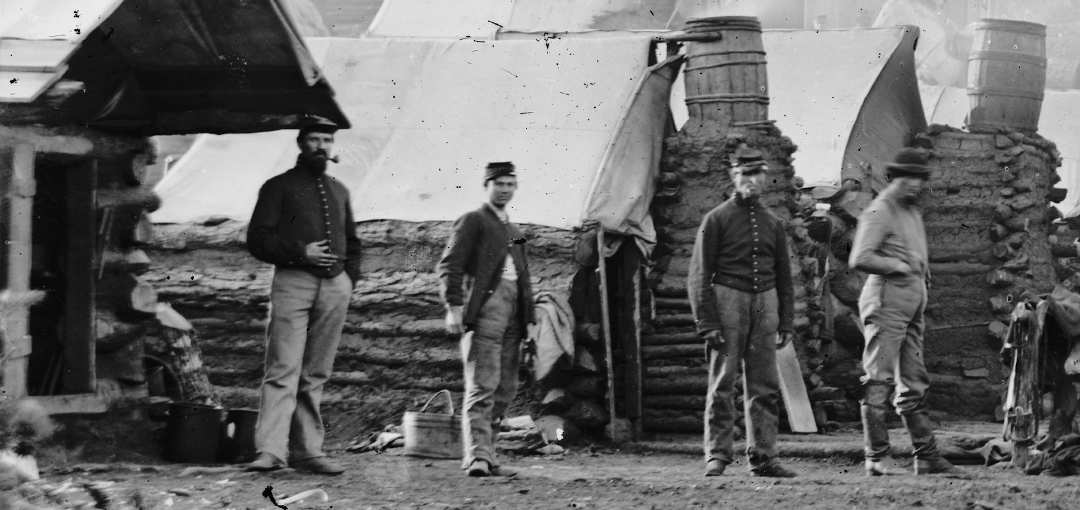
In Part 1 of this series, we met Benjamin “Ben” Del Fel Hagenbuch (b. 1833) who lived in Columbia County, Pennsylvania with his family. Ben joined the Union Army in 1861 and again in 1863. He enlisted a third time on September 8, 1864, as a private in Company C of the 210th Pennsylvania Infantry Regiment. After training at Camp Curtin in Harrisburg, PA, his unit was ordered to City Point, Virginia—the location of General Ulysses S. Grant’s headquarters during the Siege of Petersburg. Ben began writing to his wife, Sarah Jane (Ammerman) Hagenbuch (b. 1831), while traveling to this destination.
Benjamin Del Fel Hagenbuch Civil War Letters
Part 2: September 27, 1864 – January 10, 1865
September 27, 1864
Aboard Transport Ship, VA
Dear Wife,
I am well and on my way for City Point up the James River. I can look each way as far as the eye can see but cannot see land. It is very rough, and it looks dangerous. I can hardly write for looking at the fish. They are in droves on top of the water thousands in a bunch.
Dear Wife, I would a wrote sooner, but on Sunday we got orders to prepare to leave. We left Camp Curtin about one and got on the [train] cars rode all night. On Monday we got on this old steamer at Baltimore and today, Tuesday, we are all most in sight of Fortress Monroe1 and by 8 tonight, we will be at City Point. I did not think that they would send us to the front so soon, but so it is.
We are the 210th Regiment: Col. [William] Sergeant, Company C Captain [Judson] Bennett, George Tilson, Charley Mathias, [Henry] Fulmer Freeze, and me mess together. All the Danville boys are in this Company. E. Hale—I do not know where he is, but I think him and C. Mellon went out to Sherman.2 George Tilson is well and asked me to say that he would write as soon as we landed. I am sorry to say that we have not got anything from the government yet, nor has any of those that are in this regiment, but we expect it soon. Some say we will not get it until we get our first pay. That will not be under two months. I do not know what you will do if that should be the case.
So far our rations are good, if they only continue, so we are all in good spirits. How long it will last I do not know. I cannot tell you where to direct [a letter at] this time. I will write again when we get in camp. Think of me, Jane, and take good care of yourself and our children. I will write whenever I can.
I hope you all are well and happy. Give my love to A. H. & wife3 and to all our friends. If your money runs out, you can deal at Jacksons4 until I can send you my money. So with my very best love and wishes for you all, I will stop for this time.
Your Husband,
B.
Robert, [Charles] Harvey, & [Mary] Willie, I want you to be good children and mind your Mother and think of your papa.
Good day all and may God bless you all.
P. S. The boat is iron clad4 and so below that the poor boys can hardly get breath. Our company alone are on the upper deck with plenty of room. Oh the wind blows and the spray flies, so that I can hardly write. Goodbye for the present.
Ben
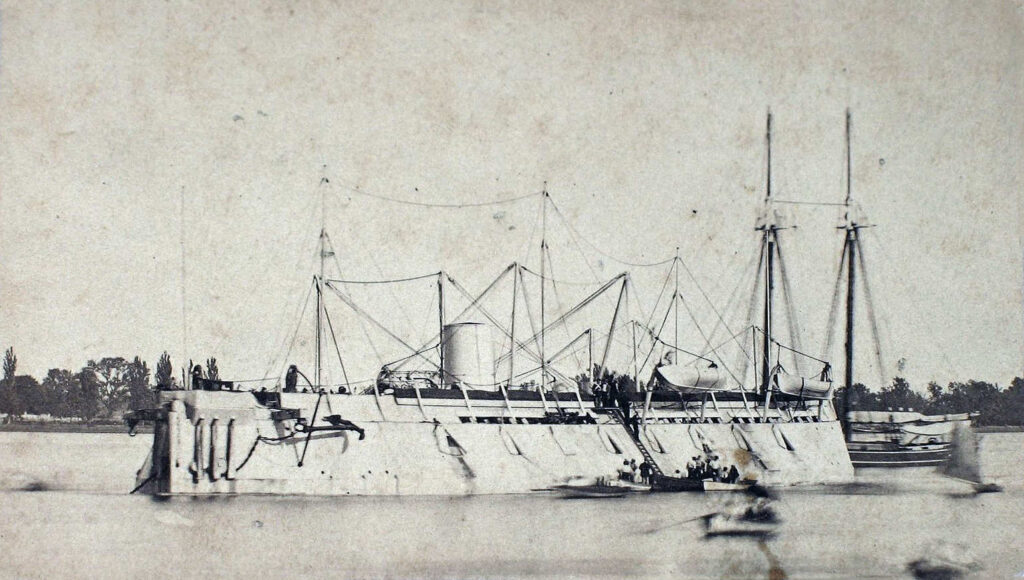
The USS New Ironsides c. 1864. A broadside ironclad like this may have transported Ben to City Point.
October 18, 1864
Headquarters 210th Regiment
Camp Near Petersburg, VA
Dear Wife,
Once more with pleasure I sit down to pen a few lines to you to inform you that I am well and hope this will find you the same. We have changed camp again, which is twice since I wrote last. The day that we left the picket line, I never met with a surprise so agreeable to me in all my life. In fact, this has been a most eventful week for me.
In the first place, while we where a leaving our old place, there was another new regiment taking our places and some of them turning up our bunks. I bellowed out “You need not be afraid of grey backs as we are a new regiment.” When someone hollered out “The Devil we need not! How are you, Ben?”
I turned and behold there stood Jim,5 Bill Leighow,6 Sam Lazarus,7 and Maney Fry.8 I’ll bet I was surprised. I saw Henry Walton too. Jim and Sam has been here all day today. Jim wonders why some of you do not write, as he has not heard from home since he left Camp Cadwalader.9 Them boys looks well and oh how black. Jim laughed at me. He says I am a curiosity, so black, dirty, and fat.
Well, Jane, I have worked the cards pretty well. I got in as camp clerk and today was taken out of the company as servant for the Colonel to cook and shave him.
Hello. My cooking I fear is played out for here is an order for me to report to headquarters as clerk for the Board of Court Martial. How long it will last I cannot tell. But one thing is certain, it is a situation I do not like. It relieves me from duty as a soldier, but it will be writing from morning to night. If it was a permanent job, I would not care, but I am afraid that I will loose the job as cook for the Colonel.
If I do, I think I can get in somewhere else. I have made a good start already. I have a friend of mine in the Division Commissary that says there will be a vacancy there afore long and that he is sure he can get me in. If not, I will return as camp clerk until a better chance turns up. The Captain of our company is a particular friend of mine and will do all he can to get me a situation.
Dear Wife, I wish you would write soon for I have had but one letter from you since I have been gone, and I have written five or six. I will have to close for tonight and wash and shave, for I must report at 8 in the morning at headquarters, perhaps to see and write the sentence and death warrant of some poor soul that has stepped over the mark.
So remaining your Ever Faithful Husband, I close,
Ben
Do write dear wife.
Direct [your letter] as before.
Jim is close here and all the rest, Leighow, and Lazarus
Give my love to Abe [Abner] and his wife and all the rest. Tell them to write to me.
I have no stamps, nor I cannot get any.
December 13, 1864
[Near Petersburg,] Virginia
Dear Wife,
I take up my pencil this afternoon to write you a few lines to inform you that I am still blessed with good health as I hope you are. We have just returned from one of the greatest raids10 through Virginia I guess that ever was made by the Army of the Potomac. It has been looked for for some time and on Wednesday morning at six o’clock we started and got back here last night (Monday)—6 days and nights. If any one had told me I could have gone through, I would not believe it.
The first day we marched as far as the Blackwater River and encamped on its banks. [It was] raining hard all the time. The distance from here was about 20 miles. We did not put up any tents but sat around the fire until 3 o’clock in the morning, then crossed on the pontoons and continued our march until we reached the Weldon Railroad about 8 o’clock and commenced tearing it up until 12 at night. Then we rested until morning, then at it again until 12 o’clock that night.
We tore up about 40 miles of railroad then turned to come back with the rebs in hot pursuit. We burnt every thing on our way: mansions, granaries, courthouses, churches, and fences, nothing but destruction. Oh but it was awful to hear—the poor women begging of the soldiers to leave their cattle, pigs, and poultry. But no, not anything that was made to eat escaped, and I do not believe there is many chickens or cattle on the road.
God being my helper, I never was off the road after anything, nor was I in a house, nor could I have the heart. Many of them payed for it with their lives, for on our road back there was 15 of our men found with their throats cut. Some shot all stragglers that were behind. The rear guard fell in the hands of the Bushwhackers and guerrillas.
On our road back we marched so fast that a great many completely gave out. Some dropped dead on the roadside. Had it not been for me, John Coleman would have been left behind. I got the doctor to put him in an ambulance. He is now in the hospital about gone. I thought several times I must give up, but I got back safe after the second day. I get better all the time.
George Tilson, Harmon Frisk, and [Henry J.] Gaskins are missing. What has become of them we do not know. They may turn up yet. They have not been seen for 3 days. There is four gone out of this camp and all others in proportion. Jim was sick and got in to an ambulance one day, but their doctor put him out the next day and, as good luck would have it, that morning I started off on advance of our regiment and met him, but not until he had thrown all his clothes knapsack [illegible text]11 with Sam Lazarus and got to the company. There I left him.
I saw [illegible text]. Bill they said joined [illegible text]. That was yesterday. He is all right. [illegible text] sooner than be left behind. I brought my knapsack all packed [illegible text] the road was captured. [illegible text] Now we are back in the rear at our winter quarters next to the [illegible text] road. [Illegible text] winter marching orders. Whether we will get them or [Illegible text] I know I hope we are to go on. [Illegible text] We must fight if we are [Illegible text].
I was disappointed last night when the mail came with a big wagon load of packages and letters and I pray to get one. I hope you are all well. Write soon and often. I write [illegible] the best when we get [illegible] and write more and often.
Ben
You need not fear, but I can read your letters no matter how they are wrote for I have time for the job.
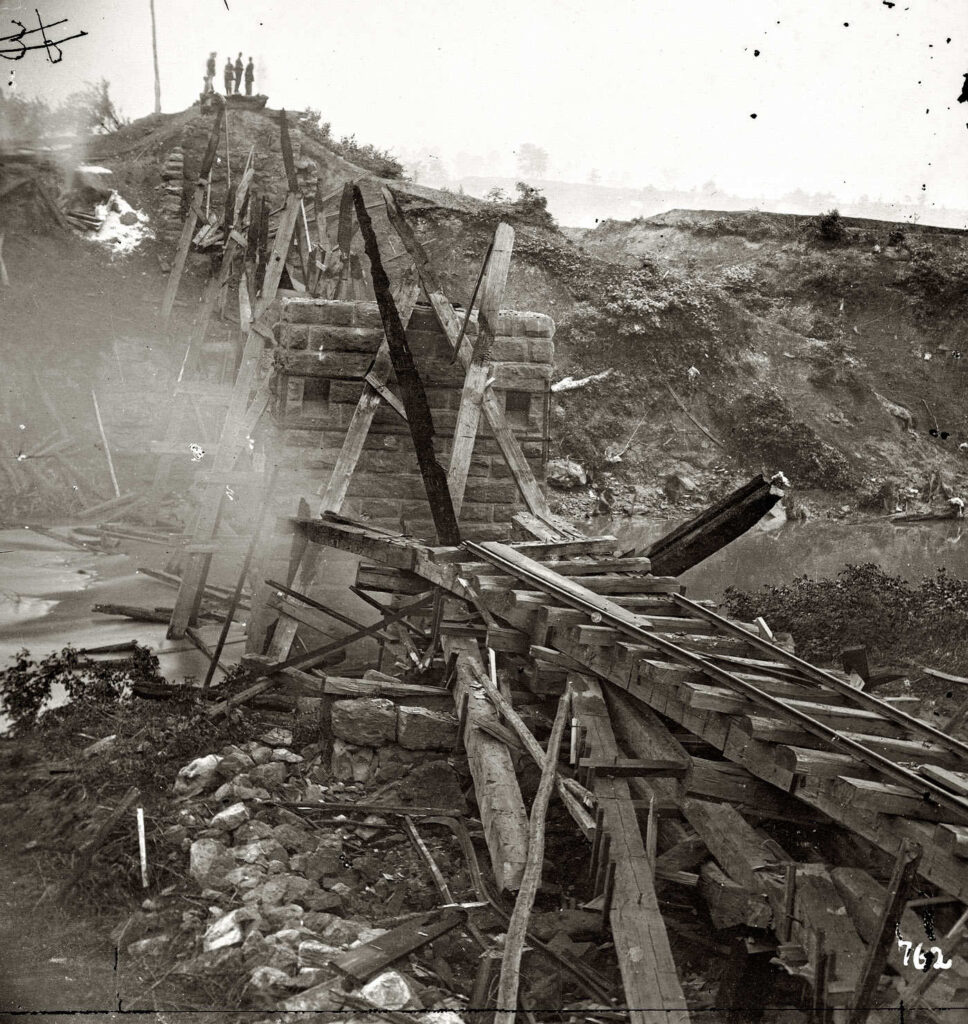
Railroad destruction similar to what Ben would have participated in as part of a raid. This example is from the North Anna River, Virginia on May 25, 1864.
January 10, 1865, Tuesday Night
Division Headquarters, 5th Corps [Near Petersburg, Virginia]
Dear Wife,
Late last night I received your ever welcome letter. I was glad to hear that you were all well. But oh how I wish I would get payed, for I know you are in awful want. My heart almost burst to think of it. I sincerely hope and pray that by the time I write again I can send my pay with it also, which I think will be about the 15th.
How I count the days. My mind is gone to everything [but] pay day and the wants of my Dear Ones at home. I think of nothing else. Your letter found me as usual in excellent health, as I hope this will find you. Today we had an awful thunderstorm. Oh how it rained all day as hard as it could pore down. I told Bill that I thought it was snowing up home. He laughed and said that you would have the same up there.
Now when you write again tell me what for weather it was on today, Tuesday the 10th. It will take us all day tomorrow to repair the damage to our house for the rain dashed all the mud from out between the logs, washed our chimney pretty near all down, beat in at the cracks, and through the canvas roof wet our blankets. The floor was completely covered with water. In fact, we were about drowned out. Our only consolation was that the rest were in the same fix. It is now 9 o’clock. Bill is trying to dry our blankets, so we can sleep with comfort as he says while I am writing this. Tell me if it thundered up there, for I never heard the like before of such awful thunder this time of the year.
Our captain has not been heard of as yet and is surely thought he was taken prisoner. There is a great many sick in the regiment. Oh but I am glad that I am out of it for they are in the worst kind of a place in the woods with swamps all around them.12 In fact, it is a swamp where they lay for it is knee deep with mud and water. I was over on Sunday. I tell you it is too bad how our men are treated when sick. It is not like when I was out before. No. Now they must stay in their tents until they cannot walk. Then they are hauled off to hospitals, where ten chances out of a hundred they never get out, only to be laid in their last resting place away from friends and kindred, where not a sigh is heard or a tear is shed for the one that can never return to loved ones at home.
Before that raid on the Weldon RR, there was hardly a sick man in the regiment. Now there is over a hundred and some twenty five have died that were sent to the hospital, and it will continue bad as long as this wet weather is. Those that are sick and what have died are those that completely killed themselves on that awful march, which I cannot think of but with a shudder. How hard it was on me I cannot begin to tell, nor can anyone that never had the trials of marching 25 miles a day in mud knee deep and snowing or raining all the time, on 4 crackers a day, and six days at that, and not stop long enough, only at night, sometimes not then to make coffee, and with a load that would break down a jackass. Is it any wonder that we lost so many stragglers?
I have not saw Jim yet. I found out where his regiment is. It is about a mile from here. I would like to see him as I have all of his papers and envelopes.
I must stop for this time I hope I can write again soon and send you some money. I do not know what to do. I have no stamps nor I cannot get any, and you have no money, so I do not know how you will get them out of the [post] office.
Write soon. From your ever true husband,
Ben
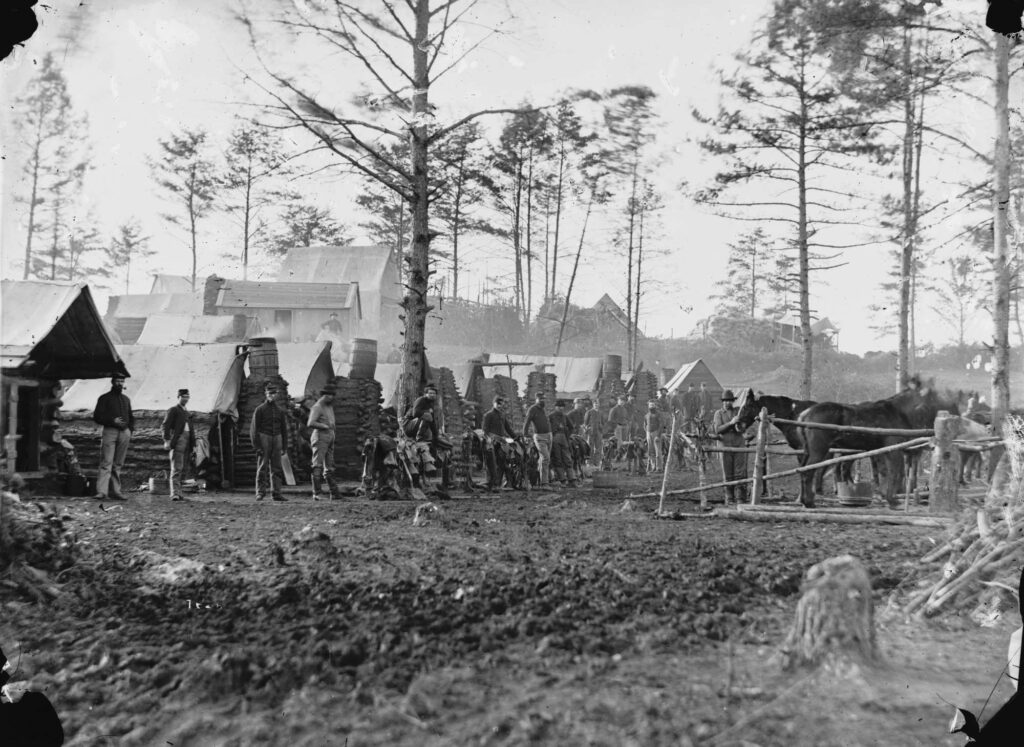
Cabins with canvas roofs and chimneys as Ben describes. This photo is of the 18th Pennsylvania Cavalry at Brandy Station, VA in March of 1864.
Footnotes
- Fortress Monroe stands in Hampton, VA overlooking the mouth of the James River into the Chesapeake Bay.
- General William Tecumseh Sherman was in charge of the Military Division of the Mississippi and was beginning his invasion of Georgia around this time.
- “A. H. & wife” are Abner Ward Hagenbuch (b. 1838) and his wife, Maria Fry (b. 1843). Abner was Ben’s younger brother. The couple had married on in May of 1864, after Abner was discharged from the Union Army for wounds received in action in 1863.
- The ship may have been a broadside ironclad similar to the USS New Ironsides.
- “Jim” is James W. Chamberlain of the 6th Pennsylvania Infantry, Co. A.
- “Bill Leighow” appears to be William H. Leighow of the 198th Pennsylvania Infantry, Co. K.
- “Sam Lazarus” might be Sanderson Lazarus of the 198th Pennsylvania Infantry, Co. K.
- “Maney Fry” seems to be Emanuel Fry of the 198th Pennsylvania Infantry, Co. K. He was wounded on April 1, 1865 at Five Forks, VA and is buried in Arlington National Cemetery.
- Camp Cadwalader was located in Philadelphia, PA near the Strawberry Mansion neighborhood.
- Ben’s unit was part of the Stony Creek Raid from December 7 – 12, 1864. The Union objective was to destroy parts of the Weldon Railroad to prevent the Confederates from resupplying Petersburg, VA. Yankee troops of the 5th Corps were harassed by Rebel forces under General A.P. Hill but were ultimately successful in their mission. On the return march, some Union stragglers were found brutally murdered by the Confederates. This angered the Yankees who struck out to burn and destroy everything in their path, including civilian homes and property. Click here for a more detailed analysis of the raid.
- One page of the December 13, 1864 letter is badly faded. “Illegible text” has been inserted to show where passages cannot be transcribed.
- Ben mentions the regiment is camped in a wet area, not unlike a swamp. However, he does not appear to be with them and describes sheltering in a house with log walls, a chimney, and a canvas roof. There are records of some types of soldiers wintering in structures like these. In a future letter, we will learn he is part of the provost guard—military police and tasked with enforcing discipline.

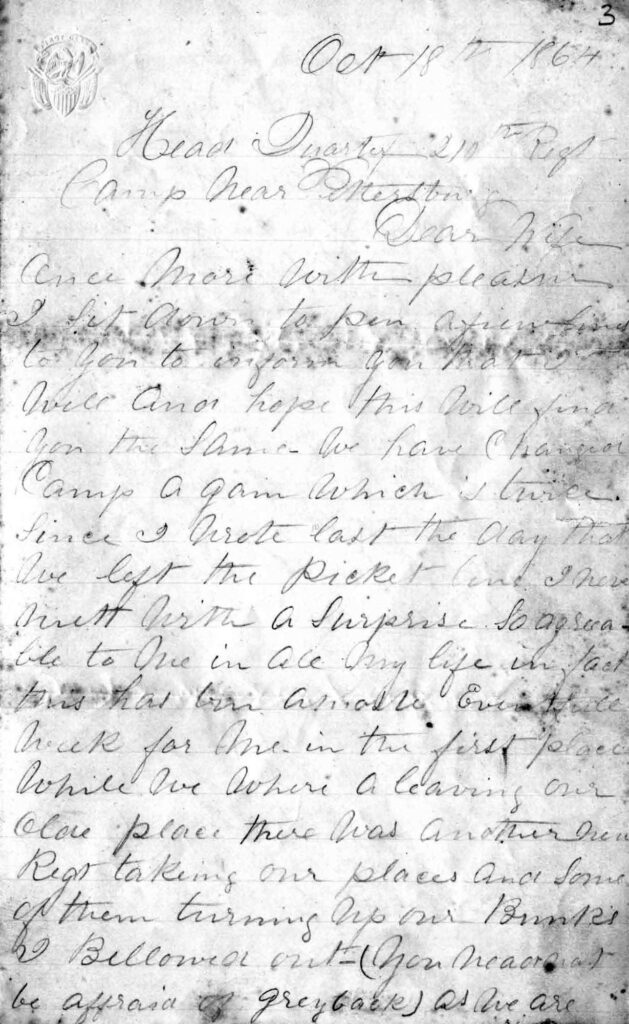
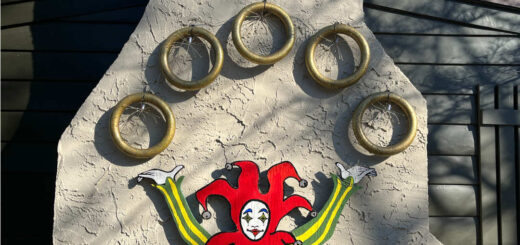
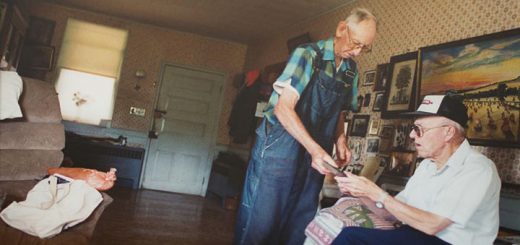
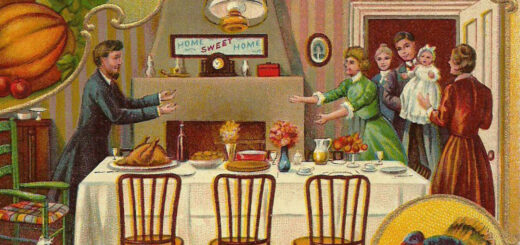









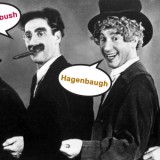



ahhhh .. letters from home. When I was in the Navy in the late ’60s the mail took a month or so to catch up when we were on board the carriers. That’s why we numbered the back of the envelops, as I mentioned in a previous post. Sometimes we would get three or four at a time. When a mail plane (nicknamed a “COD”) would land on deck, they would announce “MAIL CALL” over the PA, but until it was sorted and it got to you, it may be a number of hours wait.